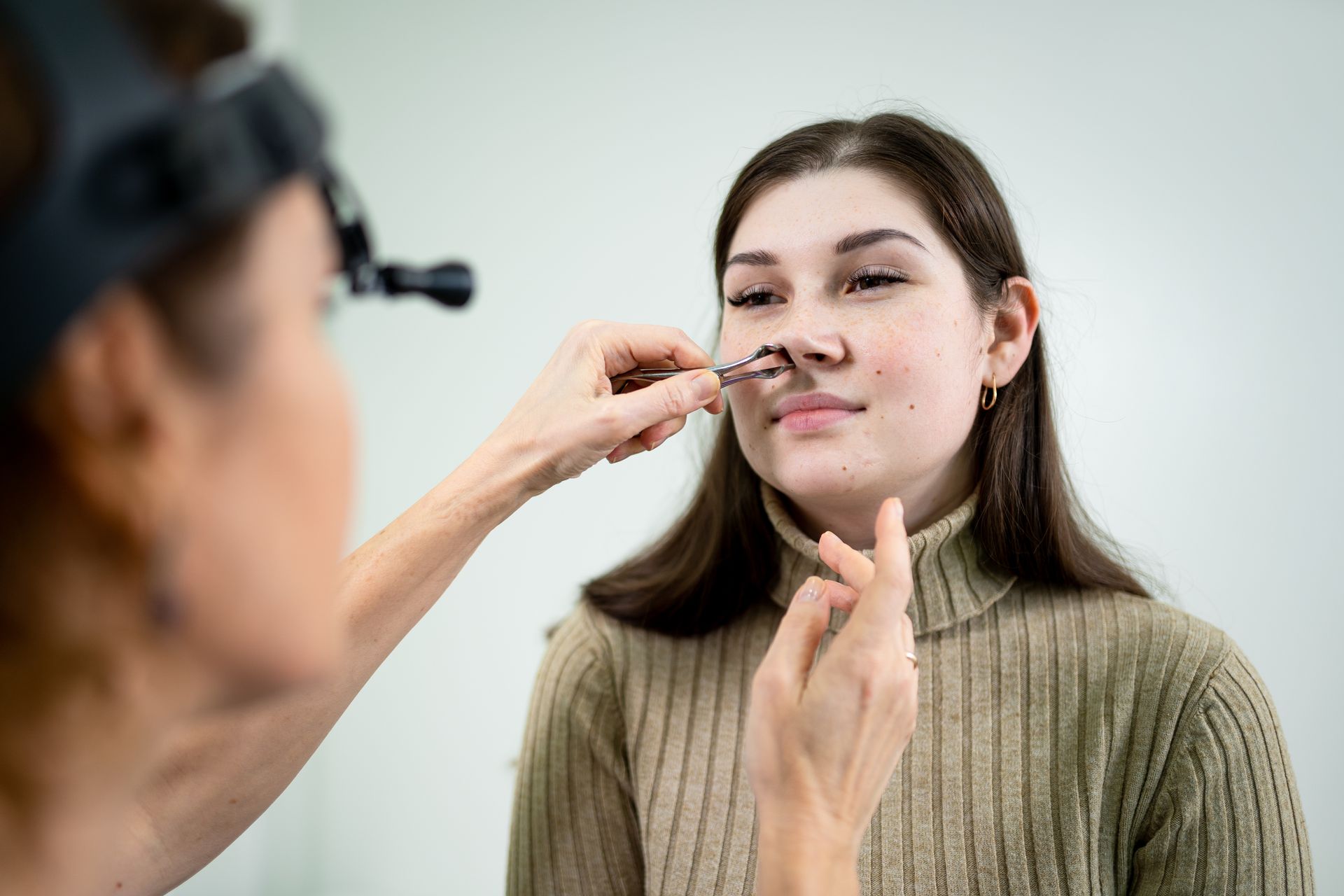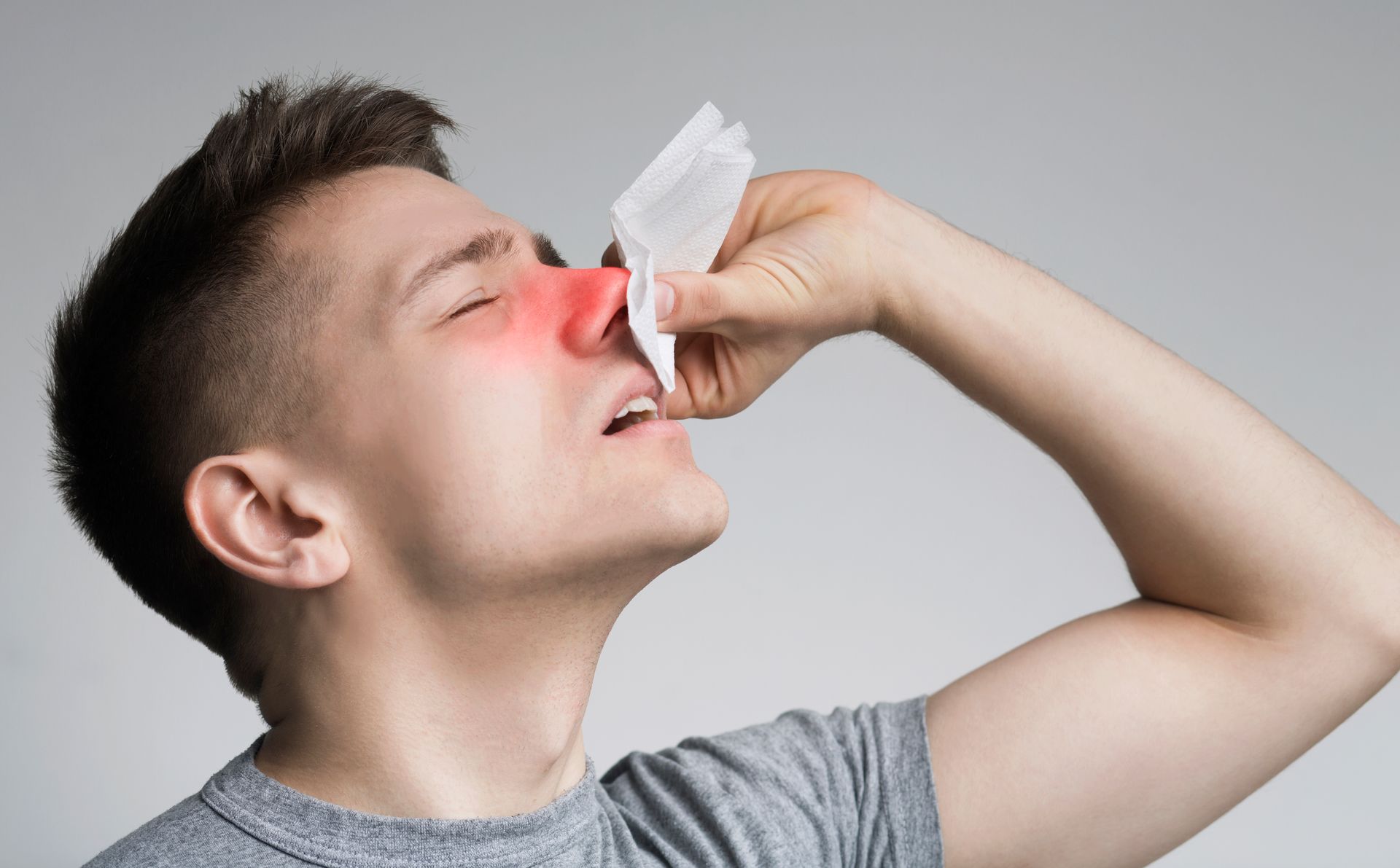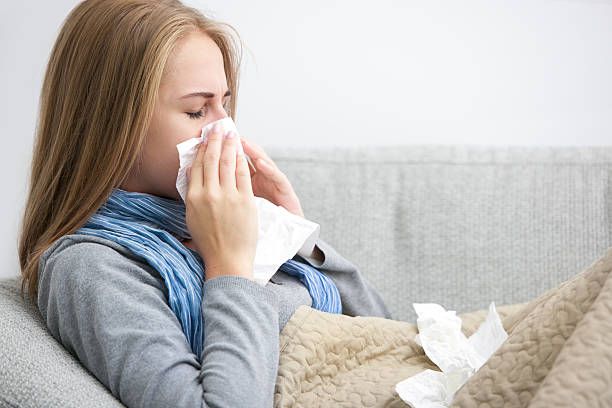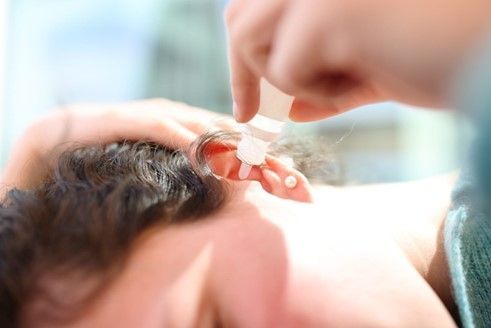What Causes Allergies in December?
When we typically think of allergies, the season that most often comes to mind is the fall or spring. This is because most of what causes allergies—or allergic reactions to foreign substances in the air—occurs in larger quantities during these two seasons, such as pollen and dust mites. It is still possible to be affected by allergies in December, though, and no matter what season it is, allergies can be a detriment to enjoying your day.
Read on to learn more about what causes allergies in the winter months, and how you can go about treating them.
What Exactly Are Allergies?
Allergies, or allergic reactions, occur when a foreign substance attempts to enter our body. Our bodies recognize that the substance shouldn’t be there, and try to get rid of it by creating antibodies, which then attack the foreign substance to try and destroy it. Unfortunately, these attacks cause swelling where the foreign substance was able to reach—that is, in your nasal passageways. This takes the form of congestion, sneezing, and a runny nose.
What Foreign Substances Cause Allergies in the Wintertime?
With colder temperatures, a common allergen is dust mites; when it’s cold, we tend to stay inside more often, which causes dust—dust is created by small particles that can come from everywhere, including even our skin! This is why it always seems as though there’s more dust around our house when we’re cleaning, as we’re constantly shedding skin. In a similar way, if you have pets, another common allergen in the winter is caused by pet dander—they lose their fur just like we lose our skin, which can cause allergens to form.
In colder weather, another common allergen can be caused by rodents. Considering how cold it can get in Kentucky in the winter, it’s no surprise that pests can be on the lookout for warmth inside our homes, which in turn can trigger allergic reactions.
How to Combat Winter Allergies
While there are many ways to treat allergies once they happen, one of the best things to do is to be preventative when it comes to allergies. This can be done in two different ways:
Give the House a Good Clean Every Month
Giving your house a thorough cleaning every month can help cut down on the accumulation of dust and other allergens that can be found inside your home. If you think you might have a pest problem as well, calling a pest control company to deal with the problem (or even just to confirm if you do or don’t) can be a great idea.
Get a Humidifier
When it’s cold outside, we tend to turn up our heaters indoors more often, and our heaters dry out the air in our homes, which makes it difficult for our nasal passages. Getting a humidifier for your home can help with this, so long as you don’t swing the other way and make your home as humid as a jungle, as mold—another allergen—likes to grow in humid climates.
If you’re suffering from allergies, reach out to Kentuckiana ENT, a Division of ENT Care Center. You can book an appointment with us, contact us online, or call us at 502-894-8441 today if you have any questions. We’ll help you get back to your normal self in no time!













